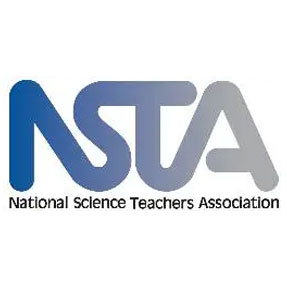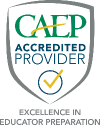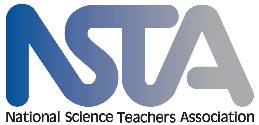What you will study
Your physics teacher training at the University of Central Missouri will give you
a solid grounding in the content area — and tools to communicate it effectively. Learn
how to choose your teaching methods and adapt them to an array of student needs. Plus,
you’ll gain insight into the adolescent mind with courses in development and psychology.
UCM’s Secondary Education BSE program will teach you how to design “minds-on, hands-on”
curricula to fully engage your future students. You’ll be able to guide them as they
explore scientific phenomena, collect and analyze data, use modeling to solve math
problems and conduct and present experiments.
Our future physics teachers begin their four-year bachelor’s degree program studying
a wide array of topics to ensure a well-rounded undergraduate education. You’ll gradually
focus on physics and educational theory and application. As you progress through the
program, you’ll spend an increasing amount of time putting your training into practice
in local classrooms.
Your classes may include:
- Computer Programming
- Thermodynamics
- Educational Psychology
- Introduction to English Language Learners and Culturally Responsive Pedagogy
Excellence in Secondary Education
- UCM's Science Education program, which is accredited by the National Association of
Science Teachers (NSTA).
- Top 15%: Most Focused Colleges for Education (College Factual, 2022)
- One of the Most Focused Bachelor's Degree Colleges for Education (College Factual, 2022)
- One of the Most Focused Colleges for Secondary Education (College Factual, 2022)
- Top 4.5%: Most Popular Colleges for Secondary Education (College Factual, 2022)
- Top 5%: Most Popular Bachelor's Degree Colleges for Secondary Education (College Factual,
2022)
- Top 10%: Best Value in Education (College Factual, 2021)
Unique learning opportunities in physics teacher education
Putting educational theory and technique into practice is crucial to a physics teacher’s
success. Engage with local classrooms for more than 100 hours even before you spend
a full semester student teaching in your senior year. By the time you walk into your
own classroom as a new high school physics teacher, you’ll be confident in your methods
and knowledge.
Future high school physics teachers have many opportunities for experiential learning
and professional development during their time at UCM.
- Professional growth: Join student groups, participate in local and national science and education organizations,
and engage with local in-service science teachers and school administrators. You’ll
gain experience researching and presenting your own work and build relationships that
will last well beyond your college years.
- Internships: Each semester, UCM offers paid opportunities to work for the Physics department while
earning your BSE. You can earn money and college credit, as well as gain valuable
job experience by being an assistant teacher for college courses.
- Student teaching: The culmination of your bachelor’s degree program is a semester teaching in a public
school classroom in Missouri. You’ll put your new skills into action and build confidence
for your first job as a high school physics teacher.
What can you do with a physics teacher degree from UCM?
With a Secondary Education BSE in Physics from UCM, you’ll be eligible to apply to
the Missouri Department of Elementary and Secondary Education (DESE) for educator
certification in grades 9–12 physics and unified science. Once you have your certification,
you can teach high school physics in any public school in Missouri.
Being a high school physics teacher is a fulfilling, stable career, and many of our
graduates choose that position long term. If you decide to increase your job opportunities
or teach at a college or university level, you can pursue an advanced degree in education,
such as UCM’s Master of Arts in Teaching (MAT). With our long history of teacher training
and fully accredited Education programs, UCM is an ideal place to return for grad
school.
Demand for high school physics teachers
Use our interactive tool below to see salaries, projected job growth, regional data
and more insights for physics teachers. Missouri is experiencing the same shortage
of skilled physics teachers that’s nationwide, so many school systems are actively
seeking new job applicants.
Financial assistance options for your Physics BSE
Invest wisely in your future by pursuing your BSE in Physics at the University of
Central Missouri. Our commitment to high-quality education at affordable rates means
you can step into your new career as a high school physics teacher with confidence,
not excessive debt.
Our program tuition costs are lower than many in Missouri. In addition, we provide
numerous ways to finance your Physics Teacher degree. Making a modest investment in your education today can pay for itself with plenty
of job opportunities when you graduate and a stable life-long career as a physics
teacher.
In addition to university-wide grants, loans and scholarships, you may be eligible
for these awards dedicated to future physics teachers:
- Nance Family Scholarship
- Joseph Snoble Science Education Scholarship
- You can learn more about program-specific scholarships at the UCM Scholarship Finder.
Student-Centered Learning
A supportive, collaborative environment
Becoming a high school physics teacher can feel daunting, but UCM can help you gain
the confidence you need to thrive. With our close faculty mentorship, small class
sizes and customizable course content, you’ll feel welcomed and seen for who you are
in a community that truly values diversity and inclusion.
Experience Campus Culture
Real-World Experience
Prepare for your own classroom the best way possible
Learn how to teach high school physics using the equipment available in classrooms
all across Missouri, and then put your knowledge into practice with ample time as
a student teacher for real schools in our community.
A History of Affordable, Quality Teacher Training
Supporting educators for 150 years and counting
Since our founding in 1871, the University of Central Missouri has trained outstanding
educators with cost-effective programming. We have been nationally recognized for
our commitment to low student debt. Embark upon your rewarding, stable career as a
high school physics teacher with sound finances.
See How Our Tuition Compares
leftright


















